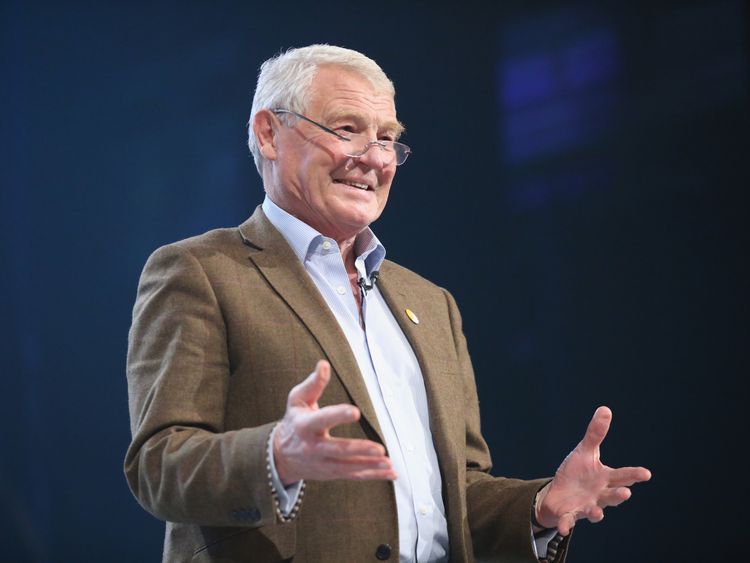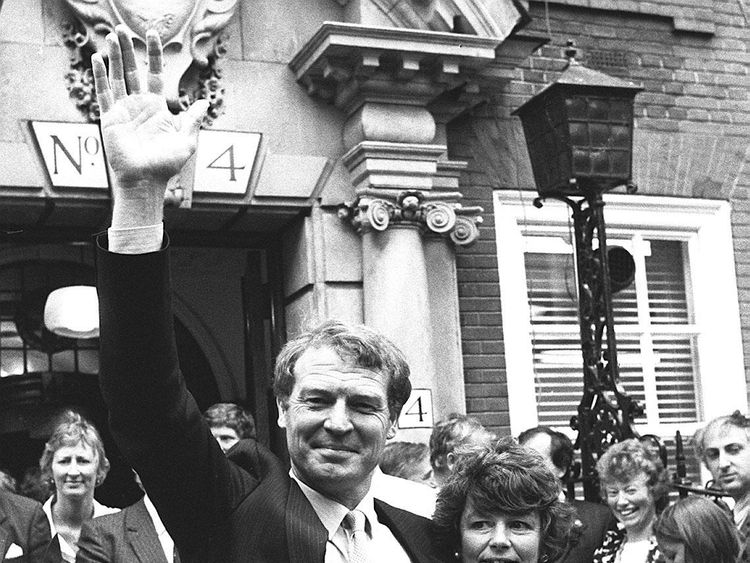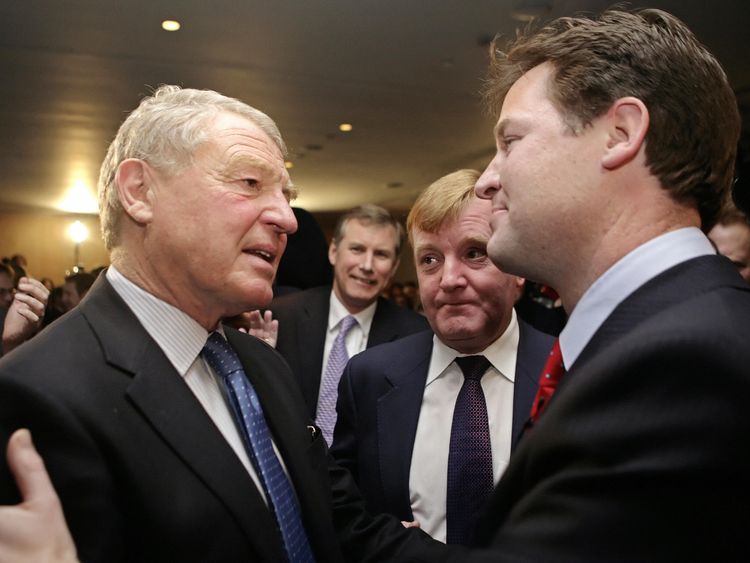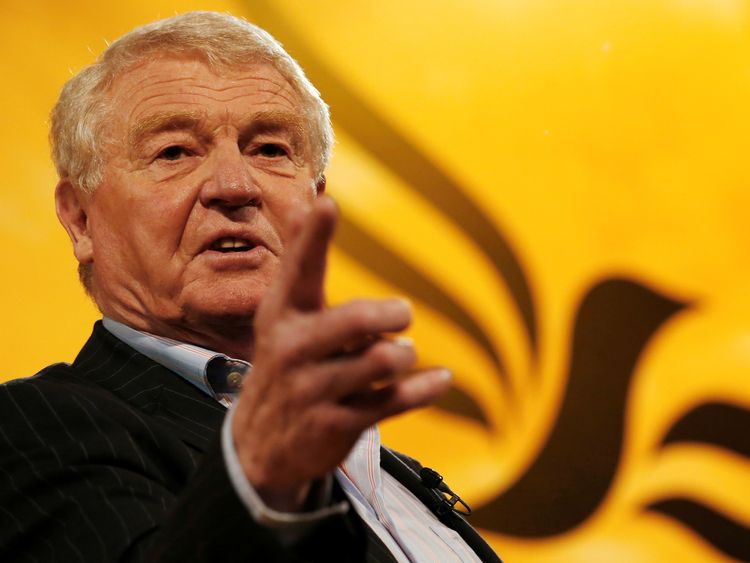The Atkinson-Kenny-Levick families have been close friends with the Ashdown family for many years and have been devastated by yesterday's sad news. Knowing that he was seriously ill was bad enough, but when someone as tough and resilient as Paddy is defeated by cancer it's depressing to the point of being almost unbelievable.
The only consolations for him, but of no comfort to Jane, Kate and Simon and their families, are that he avoided being a hospital patient for too long and he avoided ever having to make the impossible (for him) decision to stop working so hard at so many different things.
On a ski-holidays we always had to get up to the sound of his early-morning trumpet-call to be ready to catch the first lifts as soon as they opened at 9 a.m. sharp. One night, one of our children asked him if he always got up so early and didn't he ever sleep in and if not, why not?
When pressed by the young, and to everyone's amazement, he said that he could only remember ever sleeping that late once!
Eventually I hope to write more about him. But, for now, let me just share this piece from the Independent by Sean O’Grady, his former secretary - paying tribute to the politician who revived the Lib Dems and had a ‘rip roaring career’
The only consolations for him, but of no comfort to Jane, Kate and Simon and their families, are that he avoided being a hospital patient for too long and he avoided ever having to make the impossible (for him) decision to stop working so hard at so many different things.
On a ski-holidays we always had to get up to the sound of his early-morning trumpet-call to be ready to catch the first lifts as soon as they opened at 9 a.m. sharp. One night, one of our children asked him if he always got up so early and didn't he ever sleep in and if not, why not?
When pressed by the young, and to everyone's amazement, he said that he could only remember ever sleeping that late once!
Eventually I hope to write more about him. But, for now, let me just share this piece from the Independent by Sean O’Grady, his former secretary - paying tribute to the politician who revived the Lib Dems and had a ‘rip roaring career’
Life after Paddy Ashdown: Liberalism needs a new torchbearer
 |
Paddy Ashdown's career makes you wonder if you're doing enough with your life. |
Born in New Delhi during the British Raj, he was at various points an MP, party leader, peer, marine, youth worker, EU High Representative in Bosnia and even a spy.
He was instrumental in remaking British politics into, at the least, a two-and-a-half party system.
Those involved with the short lived Social Democratic Party (SDP) had dreamed of "breaking the mould of British politics" but won only a slender number of parliamentary seats.


It was Lord Ashdown's force of personality and dynamism, bringing the old Liberals and SDP together into the Liberal Democrats, which made that remoulding a reality - winning a slew of new MPs at the 1997 general election.
Affable, real, always with a story up his sleeve, he connected with the British electorate. At a time where the public were to rail against "machine politicians", he stood out.
Although a Liberal to his fingertips, it's no surprise that his death is being mourned by politicians from all corners of the political stage. His was an un-tribal politics, pluralist and open.
He worked closely with Tony Blair in the late 1990s; had the 1997 general election produced a hung parliament or small Labour majority, there's little doubt he would have entered the cabinet.

Later, Gordon Brown offered him the post of Northern Ireland Secretary in his administration. Conversely, in 2010 he would become one of the fiercest defenders of Sir Nick Clegg's decision to enter into coalition with the Conservatives.
Lord Ashdown's ballast and stature within the Liberal Democrats gave Sir Nick the shield he needed to take such a momentous decision and sustain it in office.

But despite all his achievements, the vim and the verve, it's hard not to conclude that the sort of politics Lord Ashdown embodied and fought for is waning. His brand of pluralism seems ill at ease in our own age of anger and hyper-tribalism.
The Liberal Democrats, which he worked so hard to build, are now a rump, unable to shake the shackles of the coalition years. Liberalism itself, both in Britain and the West, is on the retreat, rocked by the advance of populism and mainstream parties morphing into more extreme echoes of themselves.

And of course, Britain's place in Europe, at the centre of his politics, as an avowed pro-European, has rarely looked more uncertain. He ended his life publicly mourning what he saw as Britain's retreat from her internationalist role, her place in the post-war order in which he so fervently believed.
None of that can be blamed on Lord Ashdown. Few can say they held the torch of liberalism aloft with greater force than he.Liberalism though, clearly needs a new torchbearer, one with at least some of Lord Ashdown's qualities. At present, few seem available.


